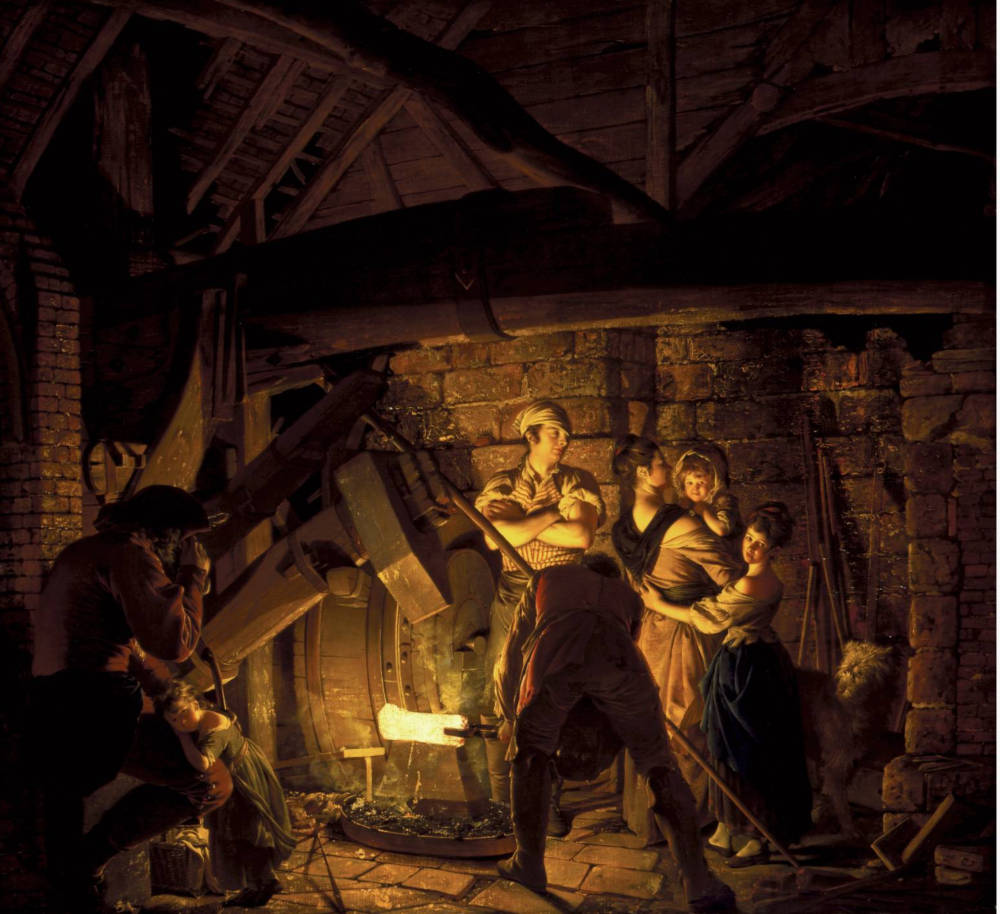Joseph Wright of Derby. An Iron Forge. Oil on canvas, 1772.
from Romola
Proem
More than three centuries and a half ago, in the mid spring-time of 1492, we are sure that the angel of the dawn, as he travelled with broad slow wing from the Levant to the Pillars of Hercules, and from the summits of the Caucasus across all the snowy Alpine ridges to the dark nakedness of the Western isles, saw nearly the same outline of firm land and unstable sea—saw the same great mountain shadows on the same valleys as he has seen to-day—saw olive mounts, and pine forests, and the broad plains green with young corn or rain-freshened grass—saw the domes and spires of cities rising by the river-sides or min- gled with the sedge-like masts on the many-curved sea-coast, in the same spots where they rise to-day. And as the faint light of his course pierced into the dwellings of men, it fell, as now, on the rosy warmth of nestling children; on the haggard waking of sorrow and sickness; on the hasty uprising of the hard-handed labourer; and on the late sleep of the night-student, who had been questioning the stars or the sages, or his own soul, for that hidden knowledge which would break through the barrier of man’s brief life, and show its dark path, that seemed to bend no whither, to be an arc in an immeasurable circle of light and glory. The great river-courses which have shaped the lives of men have hardly changed; and those other streams, the life-currents that ebb and flow in human hearts, pulsate to the same great needs, the same great loves and terrors. As our thought follows close in the slow wake of the dawn, we are impressed with the broad sameness of the human lot, which never alters in the main headings of its history—hunger and labour, seed-time and harvest, love and death.